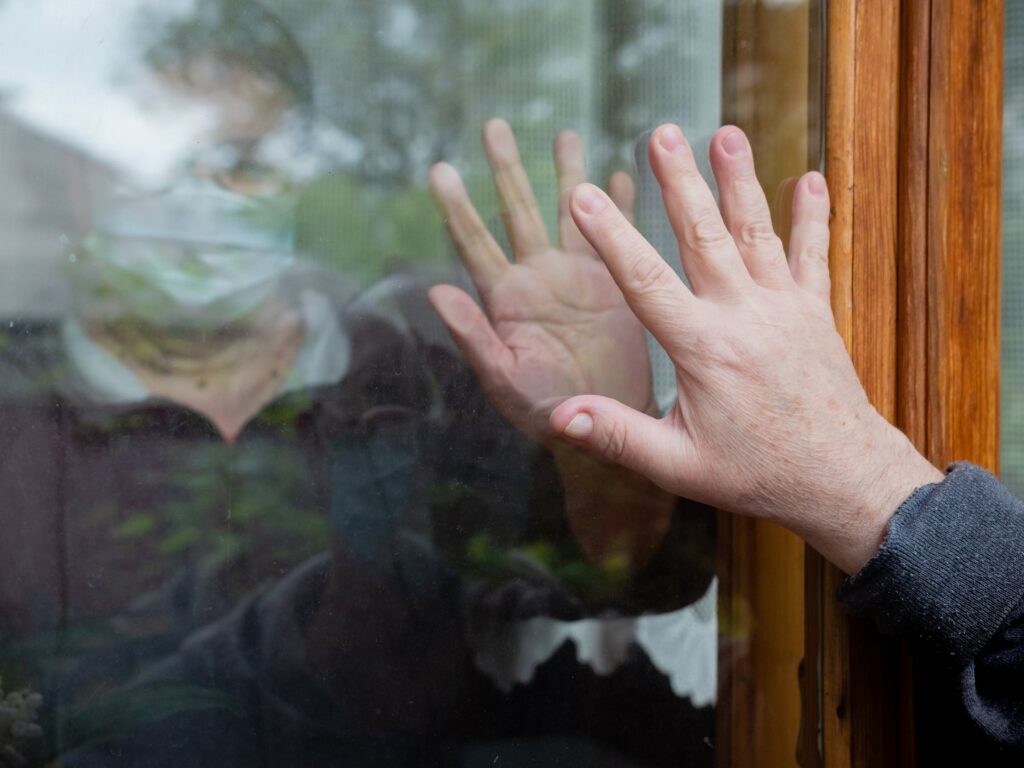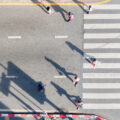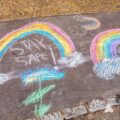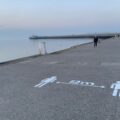Germany: When the pandemic adds fuel to fire
Germany: When the pandemic adds fuel to fire
The pandemic has made many social and church problems more visible, but it has also made people more aware of the issues of solidarity and cohesion.
This article is part of our series on the social impact of COVID-19.
The coronavirus crisis has not only restricted social life in Germany, but also put the spotlight on various kinds of problems. An example of this is the extreme staff shortage in the nursing sector. But above all, the pandemic has catapulted the importance of dying with dignity into people’s minds in a drastic way. Before the pandemic, it was probably unthinkable for most people that the situation in Germany could come to such a head: old and sick people could not see their loved ones for a long time, sometimes never again. Many died lonely, without the support of their relatives.[1] Often it was not possible to say goodbye. Consoling church rituals and human closeness were missing.[2] Such events still need emotional and spiritual processing, but also theological reflection in the sense of evoking religious perspectives of comfort and hope.
Missed opportunities
However, many people in Germany have critically remarked that such a conversation, especially on the part of the Church, was largely lacking during the crisis. The Catholic Church in particular was criticised for communicating Christian hope too little or not convincingly enough to people in need.[3] Instead, discussions about whether and how church services could be celebrated seemed to dominate. Thus, the opportunity to embody Christianity in an authentic and credible way, in order to let the message of the Gospel reach people actively, has altogether been used too little.[4]
Between shock, deceleration, and newfound freedom
At the beginning of the pandemic, many Germans seemed to be in a state of disbelief, some even of shock. In the years before the pandemic, existential problems were viewed by many from a noble distance. It was basically other people who were affected.[5]
With the pandemic, however, this changed abruptly. After all, the virus could affect anyone, which made it particularly feared. The new situation, in which the pace of life slowed down, also seemed to open up new spaces for freedom and reflection. Many discovered how valuable time really is. The carousel of everyday life, which until then had seemed to spin faster and faster, suddenly came to a standstill.[6] Some people found peace and reflection for the first time in years, or even for the first time ever. Locality was rediscovered, but above all also walking in nature, combined with spiritual reflection.[7] [8]
Winners and losers
Over time, however, it became increasingly apparent that the pandemic would create winners and losers, especially in the field of education. The ‘losers’ were mainly those pupils who came from so-called socially weak and poorer families. They were not well enough equipped technically to participate in distance learning. In addition, without the support of school, they often received less care and encouragement to cooperate.[9]
As far as religious education was concerned, different developments could be observed. On the one hand, it was simply cancelled at many schools. Some school administrators were of the opinion that the subject, effectively superfluous, should take a back seat in favour of the main subjects.[10] In addition, the opportunities offered by religious education were suddenly brought into focus: here were questions about the existential, about meaningfulness, and about a ‘beyond’.[11] These were precisely the questions that emerged as so important during the pandemic.
Parallel worlds: full intensive care units and coronavirus deniers
A split also occurred in the area of medical treatment. While staff in hospitals and care facilities in Germany, already stretched beyond capacity, were pushed to new physical and psychological limits by high numbers of COVID-19 patients, some people did not believe in the existence of the virus or dismissed the pandemic as a kind of cold virus.
The increasing restrictions on freedom through compulsory masks and testing, and closed shops and restaurants, made many Germans angry. They protested.[12] Dealing with the virus, its consequences for people’s personal lives, and for the economy and culture, divided the nation even more. In addition, many no longer knew their way around a jungle of new regulations, the meaningfulness of which was sometimes doubted.[13]
Vaccination advocates and opponents
When various vaccines came on the market, the question arose as to who should get them first. Once again, opinions were divided. Particularly vulnerable people such as the elderly and sick, or the working population? The term ‘systemically relevant’ became the starting point for numerous (ethical) discussions about who belonged to the coveted and recognised group.[14]
For some, however, the new vaccines were not so desirable: quite a few Germans rejected vaccination against the coronavirus on principle. They saw their freedom to decide about their own bodies in danger. Others feared severe side effects with unforeseeable consequences. Once again, the nation was divided. The federal government could not bring itself to make vaccination compulsory. Instead, appeals were made to the population. Some church representatives gave voice to these appeals. Pope Francis and numerous representatives of the churches called on the population to get vaccinated, especially to protect the elderly and vulnerable people.[15] [16]
The pandemic has made many social and church problems more visible, but it has also made people more aware of the issues of solidarity and cohesion. The latter are essentially important values that are held by all religions. The pandemic situation has highlighted their indispensable importance, but also the necessity of representing these values in a credible way. The churches, at least, have only succeeded to a limited extent.
Want to learn more about similar topics? Go to the EARS Dashboard.
Sources
[1] “Leben bis zuletzt oder Sterben in Einsamkeit?”
[2] “Lebt miteinander – jetzt und bis zuletzt!”
[3] “Ich war nie so enttäuscht von Kirche wie in Corona-Zeiten!”
[4] “Leben bis zuletzt oder Sterben in Einsamkeit?”
[5] “Mit COVID-19 leben – zwei Jahre nach Beginn der Pandemie”
[6] “Corona: Warum manche die Entschleunigung im Lockdown vermissen”
[7] “Was wir spirituell aus der Corona-Pandemie lernen können”
[8] “Waldbaden | Spiritueller Tourismus”
[9] Domsel, M. (2022). Geschlossene Gesellschaft trotz offener Türen? – Chancen und Grenzen durch Digitalisierung im Bereich der inklusiven Bildung. In M. Stein, M. Jungwirth, N. Harsch, Y. Noltensmeier & N. Willenberg (Hrsg.), Diversität Digital Denken – The Wider View. Tagungsband (S. xx-xx). Münster: WTM. https://doi.org/10.xxxx/xxxx In the appearance process.
[10] “Religionsunterricht in Zeiten der Corona-Pandemie”
[11] “Religiöse Bildung bleibt unverzichtbar“
[12] “Proteste gegen Corona-Maßnahmen nehmen kein Ende”
[13] ”Oberstudienrätin zu Unterricht mit und nach Corona”
[14] ”Appell an die Solidarität: Die Kirche und die Corona-Impfungen”
[15] “Appell an die Solidarität: Die Kirche und die Corona-Impfungen”
[16] “Katholische Kirche: ‘Es ist eine Sünde, sich dieser Impfstoffe zu verweigern’”






